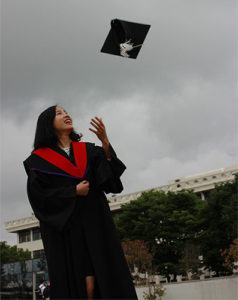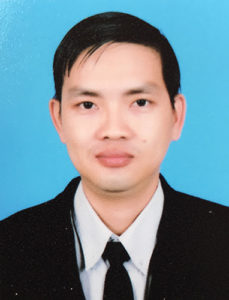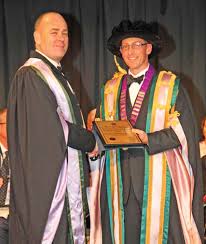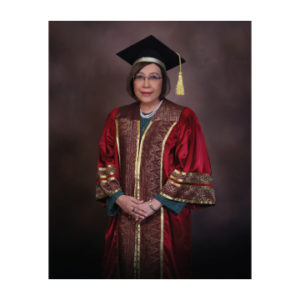-
 Publications 2022-2023Research - OUR FUTURESEE MORE
Publications 2022-2023Research - OUR FUTURESEE MORE
Our Research
We believe research is about being curious; having an open mind; asking questions; and looking for answers and solutions to real world problems. All staff and students at the University of Puthisastra are encouraged to be ‘researchers.’
At the University of Puthisastra, we are committed to quality research to inform evidence-based teaching and practice that will contribute to Cambodian people’s health, well-being, and future prosperity. Research at the University of Puthisastra is aligned with the national research agenda 2025 and international strategies, including the 2015 – 2030 Sustainable Development Goals”. Our research approach is interdisciplinary, working closely with stakeholders and national and international organizations to undertake high-quality research relevant to local, national, and global contexts.
The University of Puthisastra supports mentoring programs for emerging researchers working at UP and promotes ongoing professional development for all staff and supervisors to ensure they have a broad range of skills such as research design (quantitative, qualitative and mixed methods); innovative methods in data collection; ethical review preparation; evidence-based practice and supervision of undergraduate and postgraduate students. Students at the University of Puthisastra can be involved in a diverse range of research projects that align with the discipline they are studying in, alongside the opportunity to work across faculties with other students and researchers. The dissemination of research is promoted at the University of Puthisastra through publications in international and regional journals, conferences and regular research presentations open to all staff and students.
RESEARCH COMMITTEE
The University of Puthisastra Research Committee (UPRC) is a subcommittee of the UP Academic Board. UPRC’s main role is to enhance the research environment, including but not limited to the following:
- Developing Strategy, Policy, and Guidelines: UPRC is tasked with creating and implementing strategies, policies, and guidelines to support the university’s strategic goals in research activities.
- Leadership in Promoting Research: It provides leadership to promote research within the university, ensuring that research activities align with the university’s strategic objectives and maintain high standards of quality and ethical integrity.
- Ethical Review: UPRC conducts robust ethical reviews of all research undertaken at the university to ensure that it adheres to established ethical standards and guidelines.
Key members of UPRC currently include Prof. Chea Sin, Prof. Sandro Vento, and Assoc. Prof. Chum Chandarin.
Highlighted Research at UP
At the University of Puthisastra, we are committed to pushing the boundaries of scientific discovery and innovation. Our research highlight series provides an opportunity to showcase some of the groundbreaking research our talented team of scientists and scholars conducted. We are proud to highlight a few leading researches in 2023 below:
Highlighted Projects
UP is proud to showcase some of the most impactful and innovative projects we are currently conducting. In this section, you’ll find a curated selection of projects that represent the breadth and depth of our expertise, creativity, and commitment to excellence.
The Cambodian Health and Nutrition Monitoring Study (CAHENMS)
The CAHENMS is a collaboration between the Oral Health Bureau (Department of Preventive Medicine, Ministry of Health, Cambodia), The Maternal Child Nutrition Program, FiA, IRD, and UNICEF. A grant from The Burrow Foundation (UK) has allowed the Oral Health Bureau and UP to investigate the dynamic relationship between early childhood caries and the failure to thrive in Cambodia using this epidemiological, longitudinal study. UP Adj Asst. Prof. Bethy Turton led the oral health part of the study, with the research team being mainly from UP.
Healthy Kids Cambodia
Healthy Kids is an integrated approach to supporting health for school-age children. This strategy focuses on first establishing a social network that can refer children to manage health issues and ensure that healthy behaviors are supported. The second focus is providing a physical environment in which health occurs. Once these foundations are in place, the team can conduct interventions that support health, such as the application of fluoride medicaments (Silver Diammine Fluoride) for preventing tooth decay and the distribution of ‘iron fish’ supplements to prevent iron deficiency anemia. Evaluation of this project is ongoing, and so far, there is evidence that the application of Silver Diammine Fluoride has been successful at managing 70% of cavitated carious lesions in primary school-aged children. Adj Asst. Prof Bethy Turton leads the project, with UP staff and students as co-investigators. Partners in the project include the Oral Health Office, MOH, and the School Health Dept at MOEYS.
Digital Health Competencies for Medical Education
Digital health includes the use of digital tools in healthcare, such as health apps, remote patient monitoring systems, and electronic health records. Digital health literacy is now essential for the provision of high-quality, safe patient care. Professor Sandro Vento is participating in the development of an internationally agreed digital health competencies framework for pre-registration medical education.
The use of Kaempferia parviflora Wall. Ex Baker (Zingiberaceae) in Cambodia
The aim of the study is to review the scientific properties of Kaempferia parviflora Wall Ex Baker (black ginger); to test for its phytochemical properties and to explore the knowledge and practice of folk healers using Kaempferia parviflora Wall, Ex Baker, including how it is prepared, route of administration, duration of use and knowledge/perceptions of outcomes or any occurring side effects. This study is led by Prof. Chea Sin in collaboration with Pharm Product Manufacturing (PPM) in Cambodia.
Citizens’ voice on bringing healthcare services closer
Funded by GIZ Cambodia, the study was conducted to explore Cambodian citizens’ perceptions and experiences with health service delivery. The study aimed to examine the current health service delivery system, capture citizens’ perspectives on ideal healthcare improvements, and identify specific areas for system enhancement. This study is led by Assoc. Prof. Chum Chandarin.

 Faculty of Health Sciences and Biotechnology
Faculty of Health Sciences and Biotechnology












